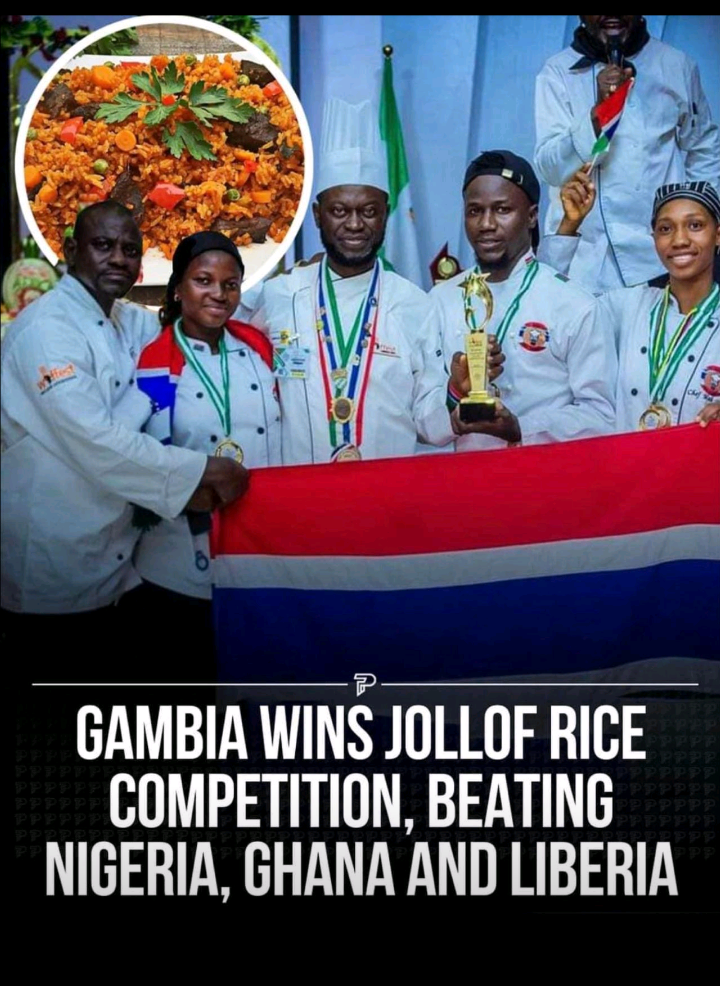A culinary competition to determine the best Jollof rice in West Africa has added a new twist to the ongoing debate on the dish’s origin.
Traditionally, Ghana, Nigeria, and Senegal have engaged in friendly disputes over who can claim the title of being the true creator of the flavorful West African rice delicacy.
However, this year’s West Africa Food Festival (Waffest), saw Gambian chefs clinching the top spot, potentially altering the narrative
Organised by the Association of Chefs in West Africa, Waffest celebrates the diverse culinary heritage of the region through indigenous culinary displays, tours, master lectures, contests, and cultural performances.
The event, now in its fifth year, was hosted by the Association of Professional Chefs in Nigeria in collaboration with the Federation of Tourism Associations of Nigeria (FTAN). Maggi Nigeria Plc sponsored the festival.
The spotlight was on the Jollof category this year, with Gambia emerging victorious over 13 other West African countries, including Liberia.
The Gambian team, led by acclaimed chef Saikou Bojang, not only secured victory in the Jollof category but also claimed first place in the vegan category. In the Master Chef Challenge category, Liberian chef Femi Joyous Wilson took the top spot.
Jollof, a rice-based dish typically accompanied by tomatoes, chili, and sometimes vegetables or fish, holds a special place in West African cuisine.
While its exact origin is a subject of light-hearted rivalry, the Senegambia region, encompassing Gambia and Senegal, is often attributed as the birthplace of Jollof.
However, the friendly rivalry between Nigerians and Ghanaians has elevated the dish’s popularity beyond the region.
Senegal, where the dish is believed to have originated, received recognition from the United Nations Educational, Scientific and Cultural Organization (UNESCO), in February.
It was designated as the home of Jollof and included in UNESCO’s Representative List of the Intangible Cultural Heritage of Humanity.
Waffest not only promotes culinary excellence but also supports efforts to preserve traditional cuisines and foster cultural exchange within the region.
The event has evolved from being a national event organized by Nigerian chefs in 2016 to encompassing participation from various West African nations and beyond.
It serves as a platform for showcasing cooking skills, food tourism, cultural engagement, music, and workforce development, encouraging investment in the tourism sector value chain of member countries.



